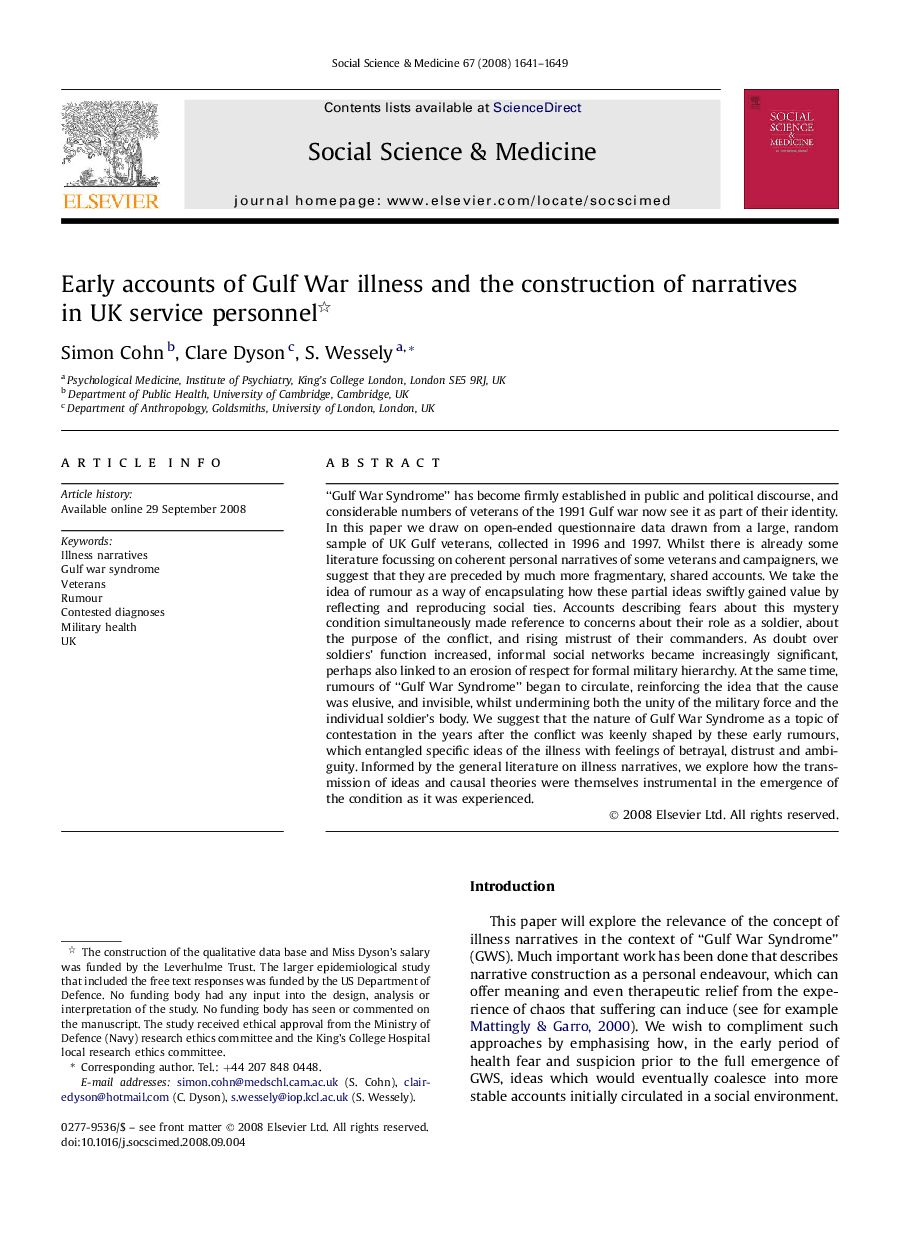| Article ID | Journal | Published Year | Pages | File Type |
|---|---|---|---|---|
| 953495 | Social Science & Medicine | 2008 | 9 Pages |
“Gulf War Syndrome” has become firmly established in public and political discourse, and considerable numbers of veterans of the 1991 Gulf war now see it as part of their identity. In this paper we draw on open-ended questionnaire data drawn from a large, random sample of UK Gulf veterans, collected in 1996 and 1997. Whilst there is already some literature focussing on coherent personal narratives of some veterans and campaigners, we suggest that they are preceded by much more fragmentary, shared accounts. We take the idea of rumour as a way of encapsulating how these partial ideas swiftly gained value by reflecting and reproducing social ties. Accounts describing fears about this mystery condition simultaneously made reference to concerns about their role as a soldier, about the purpose of the conflict, and rising mistrust of their commanders. As doubt over soldiers' function increased, informal social networks became increasingly significant, perhaps also linked to an erosion of respect for formal military hierarchy. At the same time, rumours of “Gulf War Syndrome” began to circulate, reinforcing the idea that the cause was elusive, and invisible, whilst undermining both the unity of the military force and the individual soldier's body. We suggest that the nature of Gulf War Syndrome as a topic of contestation in the years after the conflict was keenly shaped by these early rumours, which entangled specific ideas of the illness with feelings of betrayal, distrust and ambiguity. Informed by the general literature on illness narratives, we explore how the transmission of ideas and causal theories were themselves instrumental in the emergence of the condition as it was experienced.
